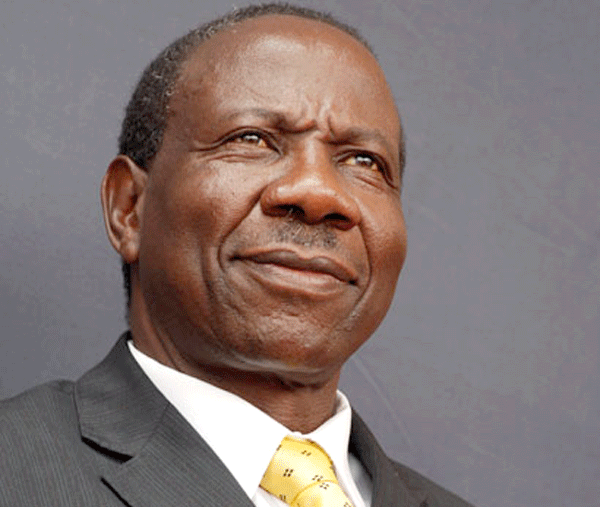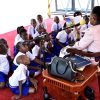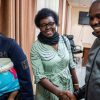Columnists
Let’s build the economy
The past was dark, but the future is bright!
Last weekend, I went to a village called Rweshande, deep in Nyaboshozi country, Kiruhura district to attend the funeral for the mother to a friend of mine. I attended all the functions; the church service, the speeches after church and the service at the graveyard.
I noticed one fact: nearly 80% of the young boys and girls that I interacted with, particularly those from the elite families, could not speak fluent Runyankole. Those who were asked to speak at the funeral resorted to English and their elders translated! I saw my friend and other Banyankole elders I sat with were extremely bothered. I know you too could be bothered how I should celebrate this social taboo.
Well, personally I consider this to be a blessing in disguise. I believe the future of this country is bright. I will explain why towards the end of this piece. But let me first explore the things that will make this country tick in the near future.
This country has a very dirty history. The late 1960s were the starting point for the destruction of what was a very promising young nation. The final blow to the young Uganda was done in the 1970s by Idi Amin’s madness. The ’80s were as dark as the men that kicked my grandfather for a mere radio cassette; his own property that they wanted to steal after enjoying some music but had no batteries at the moment!
When the current government came to power 30 years ago, some reasonable level of sanity returned to our country. They tamed the army. They reformed the economy. Most importantly, they restored our hopes. But the leaders in yellow thought that all it would take to change Uganda was to mobilise people using rallies, radios, seminars, and newspapers to drop sectarianism, to work themselves out of poverty, and mature in politics. Should I say right away that the preachers were the “do what I say…” type!
Our mothers are the dictators
Economic history teaches us that modern states and democratic politics were created not by sounding strong platitudes or arranging episodic ideological teachings at political institutes or over the radio, but by building a strong economic foundation to make every single citizen have a reason to become patriotic.
I often teach my students that we economists care quite a lot about GDP because despite its known limitations, GDP is the single variable that is highly correlated with almost all the things we all care about. It’s GDP that determines the standard of living, wages, jobs, prices at which we buy items, the value of the currency, or generally ‘happiness’.
Human beings care about many things but development economists condense the multitudes of what most people pursue in life into three things: freedom (being free from restraints, misery, ignorance, and dogmatic beliefs); self-esteem (to be a ‘complete’ person or have a sense of respect, recognition and not being used as a tool by others for their own ends); and income or what generally is referred to as sustenance (the ability to meet basic needs sustainably and with reasonable choice). These are the so-called core goals of development.
Freedom of choice is critical in life
One of the key aspects which make life interesting, and worth living, is having the freedom to do or acquire what one wants, let alone what they need. Africa is, by and large, a continent of limited freedoms. I often tell my students that many of us in Africa, when asked to identify cases where we feel deprived of our freedoms we tend to think about the bad leaders that Africa bred in plenty. I tell them that that is not true. The core dictators in Africa do not reside in the heavily guarded State Houses or military garrisons; they reside in our humble homes. Our mothers are the foremost dictators in Africa.
Low GDP, no freedom!
Mothers choose for us the meals we have. I remember when I was young my appetite for dinner could be for chicken, rice, vegetables and a soda. However, I could go back home after school and I find kilograms of cassava and sweet potatoes, accompanied by groundnut sauce. I often grumbled silently, “who told mum that everybody in this house wanted to eat cassava and potatoes? What’s the problem here? GDP! Our mothers lack the means to prepare dinner according to every family member’s choice.
Across the Atlantic, kids the U.S. or Canada and in Western Europe have the freedom to tick a menu hanged at the back of the door for their choice of the meal they would prefer. On returning from school, they find the meal in a warmer somewhere, a jug of juice or sodas in the refrigerator. They serve the meal, complete with some dietary supplements to provide them with the nutrients that the meal might not provide in sufficient quantities.
Why is this freedom of choice only possible in America or Europe, and not in here Africa? Of course the difference is the GDP. America’s higher GDP per capita ($55,200 in 2014) enables mothers to afford their children the freedom to choose the meals they want to have. Uganda’s low GDP per capita ($660) turns our mothers into dictators; dictating the type of meals for all the family members.
The average American girl enjoys not only a relatively tastier meal but also more nutritious meal than the one eaten by the Ugandan. Soon the results manifest themselves in the differences in heights, weights, and IQ of the two girls. On average, the American girl will grow into a taller, heavier and more intelligent woman compared to the Ugandan girl who is likely to fail to escape ‘anthropometric poverty’ — poverty related to medical-based measures such as the “height-for-age” index, where people who are too short for their age are often deemed as poor.
Even marriage partners patented!
The lack of freedom of choice in Uganda is not limited to meals, clothes, and other household stuff and assets. No. It goes into even choices with far-reaching effects, such as the choice of a marriage partner. Many girls, and some boys, here in Uganda marry partners who were not their choices. Factors such as tribe, religion or socio-economic status still determine who we marry. This too is due to the low GDP. How?
A young lady, against all odds, finds herself at the university. Since universities are heterogeneous, with different kinds of people meeting and interacting in a single free place, she falls in love with one of her classmates. Her name is Hadijah Nakitende and the young man she loves, to the end of the world and back, is James Okello. She approaches her parents after graduation to allow her introduce the boyfriend such that they can start a family.
On learning about the boy’s name, Hadijah’s parents get furious. Her choice for marriage, James Okello, has a double tragedy — he is Christian and Acholi. They want their daughter to get married to a Muslim, Ganda man. In the meantime, James is also fighting his own battle down in Gulu to have the Muslim, Ganda girl accepted by his parents who even can hardly pronounce her name. James’ parents are particularly annoyed as to why, of all the girls at campus, their son could not find an Ajok or Anywar.
What is the problem here? Is it culture, ignorance, or sectarianism? Anthropologists and simple thinkers may quickly cite such factors. However, a deeper analysis will reveal that the problem is actually largely economic. It is GDP! Suppose Hadijah’s father is Professor Mahmood Katende, the Vice Chancellor of a top university in the country, and James’s father is Dr. David Okello, working with the World Bank in Washington D.C, in the U.S. All of a sudden things may change; and they are fast changing among families with such characteristics in Uganda like the ones I met at the funeral last weekend.
Hadijah tells her father, “Dad I am bringing my boyfriend this weekend. Please be around.” When Prof. Katende meets James, his interest is mainly in finding out the young man’s ambitions, his level of education and whether he loves his daughter and will keep her happy. Issues such as tribe and religion only get mentioned in the passing when James mentions his father’s name.
On learning James’ father’s name, Prof. Katende tells James how he actually attended the same university, California Berkley in the U.S, with his father. All of a sudden it is fun and mirth at Hadijah’s home. What has changed the odds? One may say it is education or civilisation, but ultimately all those aspects translate into one main factor — GDP. What makes the families of both Prof. Katende and Dr. Okello comfortable with their children’s choices is the realisation that their education, incomes, and thus standards of life (call it family GDP) will be augmented by the marriage union.
So we need to build this economy, raise the GDP such that a big percentage of the population enters the middle class segment. That’s what is going to rid this country of the useless dogmatic biases our people still have: tribalism, sectarianism, poor political decisions, etc. The reason I believe the future of this country is bright is because with education, a growing economy, and globalisation, the young generation will, by default, find itself free of those biases their parents who grew up in poverty and closed societies possessed in tons.
Comments














